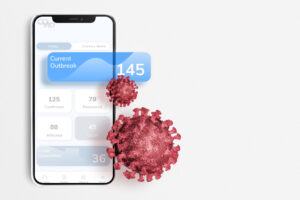Join us on a fascinating journey into the depths of personal data exploration, where Alex, a curious data scientist, delves into the intricacies of his own health using cutting-edge technology. In the midst of illness, Alex’s insatiable curiosity leads him to develop a personalized app, shedding light on the hidden patterns within his coughing behavior.
What happens when a data scientist has a cough?
In his latest venture, Alex found himself in the grip of illness, but instead of succumbing to the usual lethargy and discomfort, he decided to turn his analytical skills inward.
Intrigued by the nuances of his own coughing behavior, Alex embarked on a personal data exploration journey, seeking to unravel the patterns and insights hidden within the symphony of coughs that accompanied his bout of sickness.
Alex’s health app
Driven by his inquisitive nature, Alex decided to transform his self-observation into a quantifiable venture by developing a personalized app to count and analyze his coughing episodes. Leveraging his proficiency in coding and data science, Alex crafted a user-friendly application that seamlessly integrated with his daily routine.
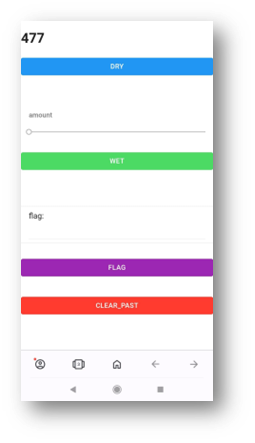
The application sent the data to a simple storage from which he tapped later to gain insight into his coughing patterns, providing a comprehensive overview of his illness experience.
Alex’s health insights
Insight number 1: Alex is getting better as days go by! The proportion of coughs has been decreasing.
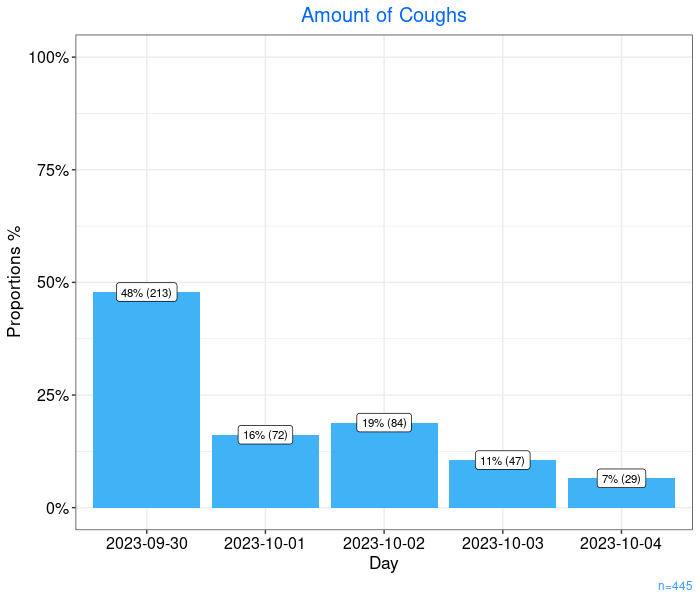
Insight number 2: The most common types of coughs are DRY inefficient coughs. About 83% of all the coughs were DRY coughs that did not improve Alex’s breathing (Volume = Phlegm volume rating on a 1-4 scale, 1 = completely dry).
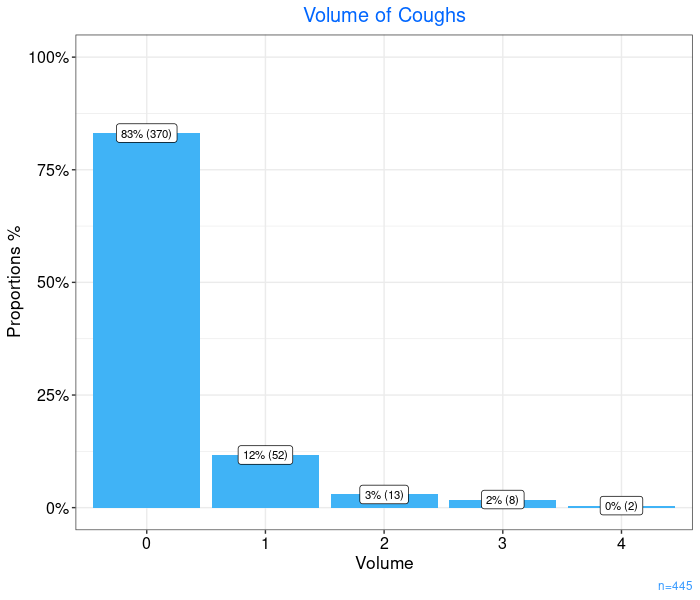
Insight number 3: the most efficient coughs happened during early morning. As can be seen when plotting the coughs by time and Phlegm volume, the most efficient coughs peaked about an hour after the first dry coughs happened. Between 8:00-9:00 AM. The ability of Alex body to remove Phlegm efficiently is dependent on the hour of the day.
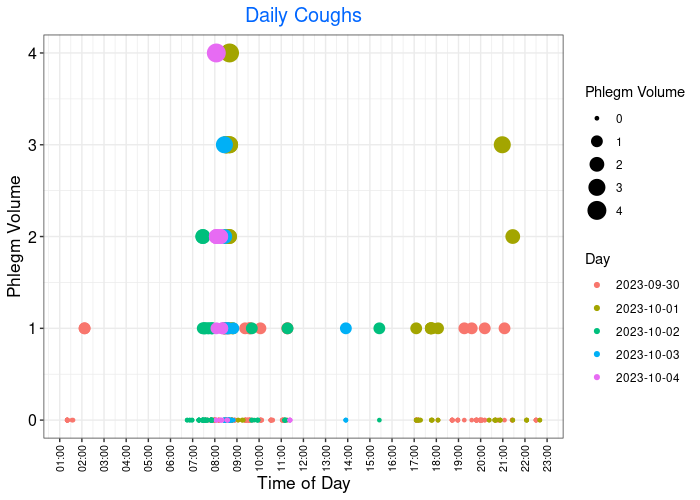
Alex attempt was just a short exploratory analysis. However, both the app and the data collection could easily be scaled up to become a large research plan. Such research can contribute to the medical understanding of respiratory health, leading to more targeted interventions, improved patient outcomes, and a proactive approach to healthcare on both individual and population levels.
Conclusions
Through Alex’s innovative approach, we uncover invaluable insights into respiratory health, paving the way for targeted interventions and improved patient outcomes. By scaling up such data-driven research, we envision a future where personalized healthcare becomes the norm, empowering individuals to take proactive steps towards wellness. Join us in harnessing the power of data to revolutionize public health and shape a healthier tomorrow.
While Alex is a fictional name, both the story and the data obtained through the application is true and will be given to anyone who might wish to use this data to improve the public health (contact below).

